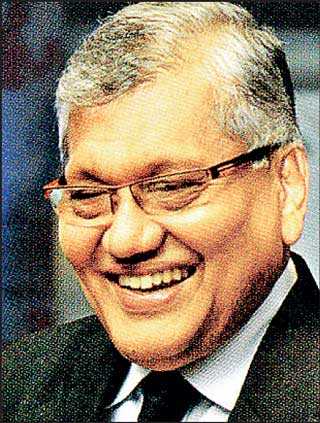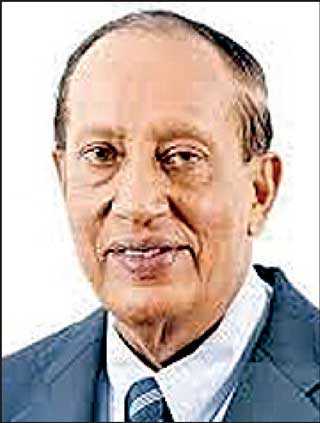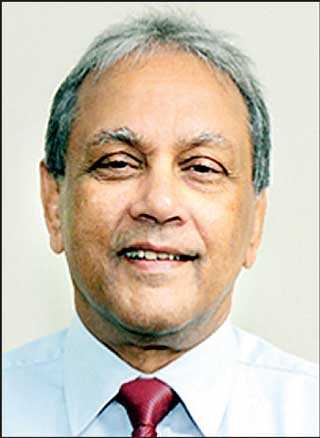Tuesday Feb 24, 2026
Tuesday Feb 24, 2026
Friday, 23 April 2021 00:00 - - {{hitsCtrl.values.hits}}
 |
| Prema Cooray |
 |
| Dr. Prathap Ramanujam |
 |
| Abbas Esufally
|
The chorus against a new Tourism Act is getting louder as the private sector funded and driven industry is fighting for its rightful representation in key marketing and regulatory agencies which they want to continue independently than amalgamating to single entity.
Last week the industry’s apex bodies The Hotels Association of Sri Lanka (THASL), the Colombo City Hotels Association (CCHA) and the Sri Lanka Association of Inbound Tour Operators (SLAITO) voiced their strong opposition for a repealing of the 2005 with new legislation. They said the move is untimely and destructive.
Yesterday, three highly respected industry veterans from both private and public sectors joined the growing lobby against the proposed new Act.
Based on a 2020 Budget proposal and on the advice of current administration of Sri Lanka Tourism the Tourism Minister Prasanna Ranatunga a fortnight ago got Cabinet approval to draft a new Act which will see three key institutions – Sri Lanka Tourism Development Authority (SLTDA), Sri Lanka Tourism Promotion Bureau (SLTPB) and the Sri Lanka Conventions Bureau (SLCB) being amalgamated into one entity – Sri Lanka Tourism Authority.
The latter will be devoid of private sector representation which the Sri Lanka Tourism alleges has not been effective and supportive as well as being a stumbling block for progressive moves.
Industry legend Prema Cooray begs to disagree and insists that the three institutions – SLTPB, SLTDA and SLCB – must be operated separately with greater private sector representations in the Boards of SLTPB and SLCB.
Cooray opined that a new Tourism Act was unwarranted, and putting private sector representation out of key agencies would be highly detrimental. He recalled that the existing Act had consensus, took long years to bear fruition, giving the much-needed focus and funding for tourism development and marketing. Cooray also warned throwing out private sector representation from key agencies is unjustifiable and disruptive.
Cooray, who had his entire career at tourism-rich conglomerate Aitken Spence before retiring as Chairman, said that imposition of 1% of turnover as Tourism Development Levy (TDL) and a part of the Embarkation Tax ensured steady finances for the industry via the Tourism Fund. Of the fund, 73% went to running the SLTPB and the balance to regulatory agency SLTDA, the SLCB and the Sri Lanka Institute of Hotel Management (SLIHM).
“Having a common and competent Chairman drawn from the public sector is fine but the respective Boards must have private sector representatives since the industry is entirely private sector run and funded,” said Cooray who was awarded the ‘Legend of Tourism’ by the Ministry of Tourism in 2011.
“We know what and how the Ceylon Tourist Board was before the existing Act came into force and the proposed new Act will cause serious damage,” Cooray opined.
Dr. Prathap Ramanujam, considered as the longest serving Tourism Secretary, reiterated that the private sector representation is a must in the development of tourism and marketing of the destination as mandated in the existing Act rather than the Government taking the onus via new legislation.
Dr. Ramanujam, as Secretary, was the Co-Chair of the high-powered and well-industry represented Task Force to formulate the Tourism Act of 2005.
“I don’t think the existing Act should be repealed, thereby progress backwards,” he told the Daily FT.
“Since tourism is run and funded by the private sector, it was mandated that it should have due representation in these institutions and that the expenditure on marketing must be done with private sector inputs and concurrence,” he added.
Dr. Ramanujam also said the existing Act was after a thorough study and had consensus of all and duly segregated key functions.
“Perhaps the new administration does not know how the tourism sector works. Back then we did a thorough analysis of the previous Act and found that the then Ceylon Tourist Board was overburdened with too many responsibilities. There were a lot of issues and complaints primarily due to the lack of private sector engagement.
“Resultantly, there was consensus that regulation and promotion must be separated since one agency doing both caused conflicts. This led to a more pragmatic approach of setting up the Sri Lanka Tourism Development Authority for policy setting and regulation, and the Sri Lanka Tourism Promotion Bureau for destination marketing,” Ramanujam said.
“The role of the Government is efficient facilitation in terms of right policies and procedures agreed upon with proper consultation with and inputs from the private sector. The 2005 Act in fact formalised this,” he said, recalling that he could not have functioned as Tourism Secretary without the expertise of and active engagement with the private sector.
“Apart from contributing to the Tourism Fund, the private sector also invests considerable money to do their own marketing. This is in addition to having invested in building and operating hotels and resorts. All this makes a compelling case for private sector representation in the SLTPB and the SLTDA and the Sri Lanka Conventions Bureau,” Dr. Ramanujam pointed out. He also said the existing Act formalising critical private sector engagement as well as support for SMEs.
Hemas Holdings PLC Director and former industry leader Abbas Esufally described the 2005 Tourism Act as an excellent piece of legislation and emphasised it should not be repealed. He also said concerns of ‘duplication of roles’ and ‘much higher financial burden’ could be addressed within the framework of existing Act.
“Tourism is mainly a private sector owned and operated industry. It is my belief that the existing Act provides an adequate framework for this industry to become the largest foreign exchange earner, creating significant direct and indirect employment opportunities from related activities,” Esufally said.
“It also serves as an ideal model of a private/public sector partnership for the industry, designed to achieve the goals set in the President’s ‘Vistas of Prosperity and Splendour’ Manifesto for an ‘efficient country free from corruption’, and to reach the targets set for the tourism industry to reach seven million visitor arrivals generating over $ 10 billion in revenues,” he added.
"The Cabinet of Ministers and the relevant authorities must reconsider their decision to repeal the existing Tourism Act, enter into a consultation process with the private sector to resolve the key issues of complexity and resource wastage that has been identified as the key reason to repeal the existing Act," Esufally stressed.